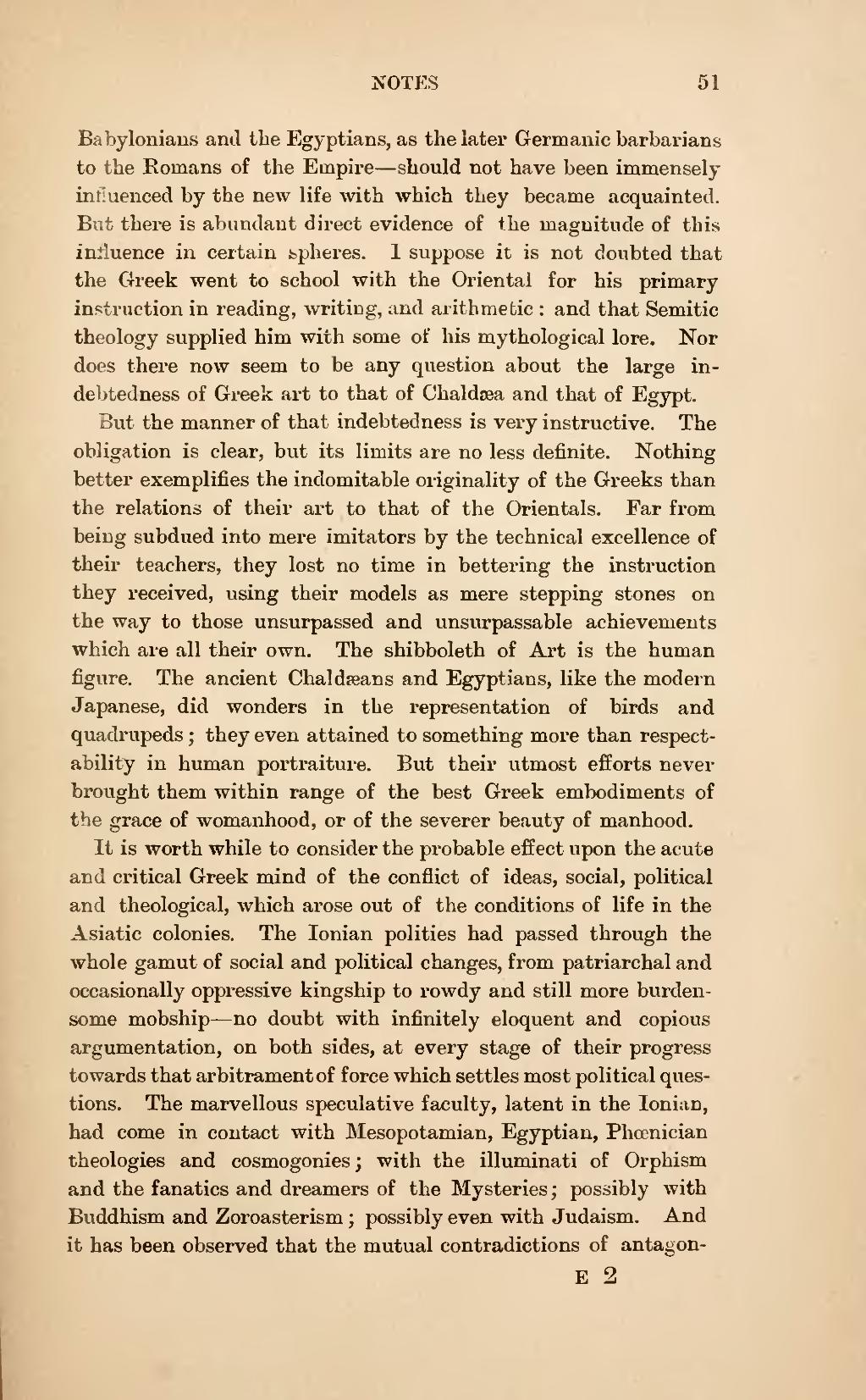Babylonians and the Egyptians, as the later Germanic barbarians to the Romans of the Empire—should not have been immensely influenced by the new life with which they became acquainted. But there is abundant direct evidence of the magnitude of this influence in certain spheres. I suppose it is not doubted that the Greek went to school with the Oriental for his primary instruction in reading, writing, and arithmetic: and that Semitic theology supplied him with some of his mythological lore. Nor does there now seem to be any question about the large indebtedness of Greek art to that of Chaldæa and that of Egypt.
But the manner of that indebtedness is very instructive. The obligation is clear, but its limits are no less definite. Nothing better exemplifies the indomitable originality of the Greeks than the relations of their art to that of the Orientals. Far from being subdued into mere imitators by the technical excellence of their teachers, they lost no time in bettering the instruction they received, using their models as mere stepping stones on the way to those unsurpassed and unsurpassable achievements which are all their own. The shibboleth of Art is the human figure. The ancient Chaldæans and Egyptians, like the modern Japanese, did wonders in the representation of birds and quadrupeds they even attained to something more than respectability in human portraiture. But their utmost efforts never brought them within range of the best Greek embodiments of the grace of womanhood, or of the severer beauty of manhood.
It is worth while to consider the probable effect upon the acute and critical Greek mind of the conflict of ideas, social, political and theological, which arose out of the conditions of life in the Asiatic colonies. The Ionian polities had passed through the whole gamut of social and political changes, from patriarchal and occasionally oppressive kingship to rowdy and still more burdensome mobship no doubt with infinitely eloquent and copious argumentation, on both sides, at every stage of their progress towards that arbitrament of force which settles most political questions. The marvellous speculative faculty, latent in the Ionian, had come in contact with Mesopotamian, Egyptian, Phœnician theologies and cosmogonies; with the illuminati of Orphism and the fanatics and dreamers of the Mysteries; possibly with Buddhism and Zoroasterism; possibly even with Judaism. And it has been observed that the mutual contradictions of antagon-
